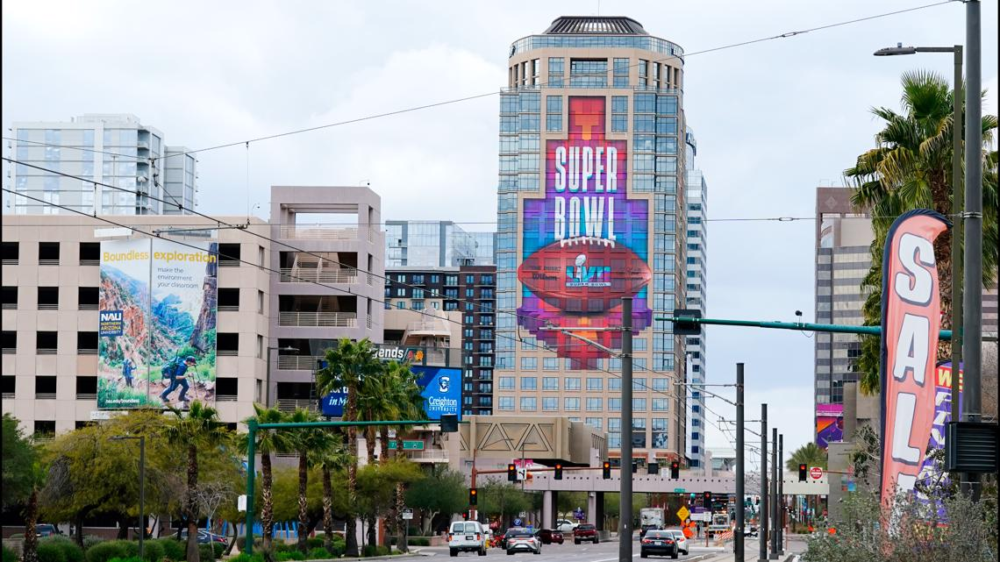Next up in 5
Example video title will go here for this video
PHOENIX — A Maricopa County judge has ruled that Phoenix’s signage restrictions leading up to the Super Bowl were “unconstitutional” and ordered the city to allow a property owner the chance to put up signs.
The Goldwater Institute recently sued the city after Phoenix set restrictions on how property owners in the downtown area could put up signs before Super Bowl LVII.
The lawsuit was filed after Bramley Paulin, a property owner, took issue with the NFL being given the authority to approve or deny any advertisements in the area. Paulin owns two properties within the “clean zone,” including one across from Hance Park.
“I wanted to lease out my property,” Paulin said. “You could imagine of all the companies that are out there who would love the opportunity to sell their products to market their name.”
One of the companies Paulin communicated with was Coca-Cola, which was not willing to strike a deal with Paulin due to the “clean zone.” A Coke ad would have more than likely been immediately struck down due to the Super Bowl’s longstanding partnership with Pepsi.
“You just kind of get fed up when the government just wants to run you over and trample your rights,” Paulin said. “It gets to a point that enough is enough. And I decided to fight.”
Maricopa County Judge Bradley Astrowsky determined that the city’s “clean zone” resolution was an “unconstitutional delegation of government power,” the Thursday ruling said.
“The Resolution provides no standards to guide decision-maker’s discretion. It was also unconstitutional of the City to delegate this power to an unaccountable private actor,” the ruling states.
Even after the city attempted to amend the issue by passing a new resolution that removed the NFL’s involvement, the judge determined that it was too late to provide relief for the property owner. It would have been “futile” for the property owner to start putting up advertisements because the lengthy application process likely would not have been completed before the Super Bowl.
“The first time Plaintiff could take action on a facially constitutional law was at a time when it was too late for him to obtain his own use permit. Any delay is the cause of the City’s conduct and not that of Plaintiff,” the ruling said.
In summary, the judge found that Phoenix enacted an unconstitutional resolution and then “exacerbated the problem” by choosing to fix the problem when it was already too late for the plaintiff to exercise his speech rights.
“This is the first decision we’ve seen in the country where we’re a court has been emphatic that you can’t have Super Bowl, Super Bowl subcommittees, making decisions about what can and can’t be said during the Super Bowl,” said Jon Riches, vice president for litigation with the Goldwater Institute.
Riches and Paulin hope the ruling creates a precedent for host cities and other large events.
“I’m a very big believer in First Amendment and other constitutional rights and property rights,” Paulin said. “So this is a very big win for us.”
The judge ordered the city to consider the plaintiff’s signage application within 48 hours.
In response to Thursday’s ruling, the City of Phoenix released the following statement:
The City of Phoenix has and remains committed to working closely with small businesses to provide the permits and licenses they need to benefit from the increase in visitors. This includes items such as food sales, signs, street and sidewalk vending, and other business opportunities.
The full ruling can be read below:
Notifications can be turned off anytime in the browser settings.



